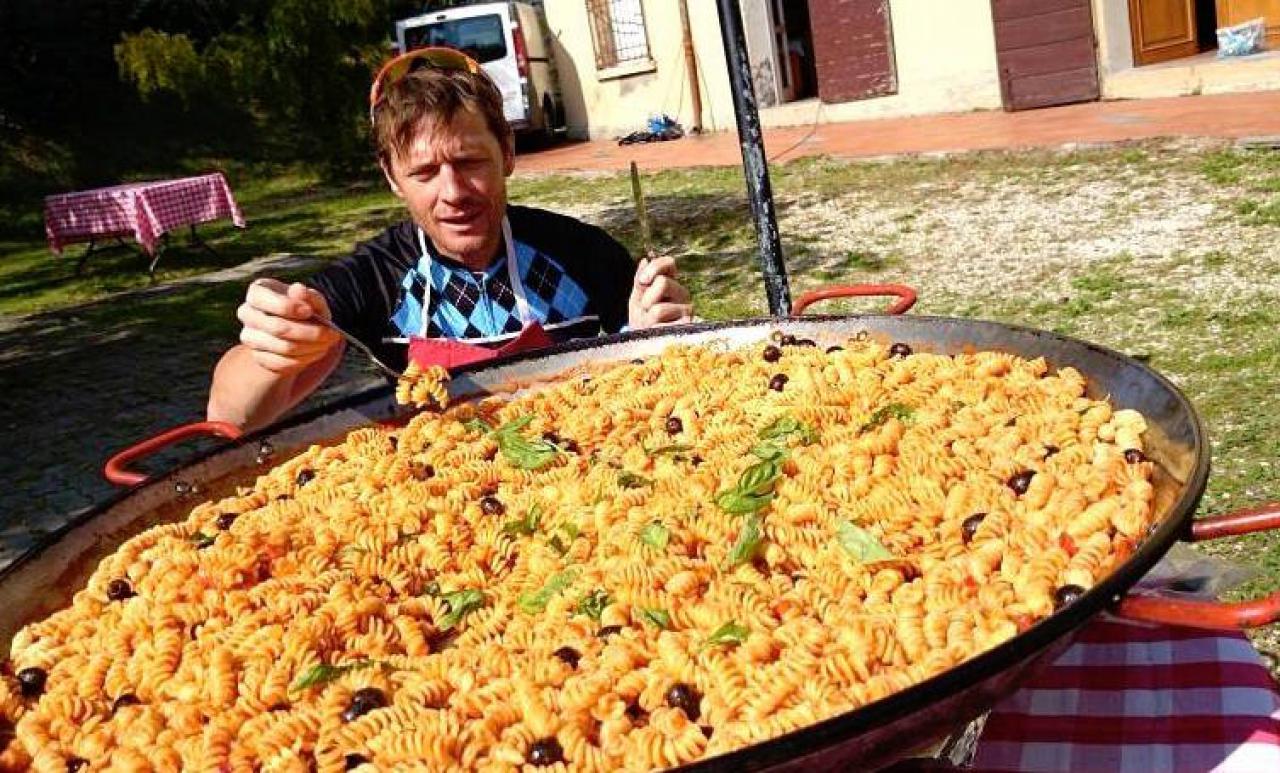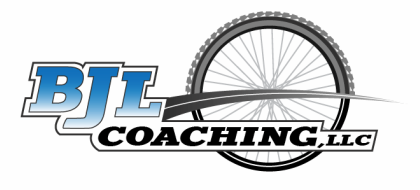 I was first introduced to Andy Blow and Precision Hydration many years ago, but I really got to know their philosophy and science in 2020. When the pandemic hit, I took the opportunity to get as much sports science and coaching education that I could. One of the certificates I earned was through Precision Hydration and TrainingPeaks. While this field continues to evolve, the basic tenants of Precision Hydration, which are grounded in science, practice, and good sense, have stood up to the test of time. Here’s great listen about hydration, sodium, and cramping: https://extramilest.com/blog/extramilest-show-43-andy-blow/ Despite it being a running focused podcast, the principles can certainly be applied to cycling and other endurance sports. I’d love to hear your thoughts, questions, and general musings! Cheers, Coach Brian
0 Comments
 This is sometimes a tough one for those of us who have been in the sport, particularly road riding and racing, for a long time: Fact: Lower pressure (to a point) is often faster than rock solid. I started road riding and racing on 21's and 23's, and I'm sure some of the readers were on 19's. I can remember seeking out 23c Vredstein tires because even with a tube, they could be pumped up to 140 psi, as opposed to many other's topping out at 125 pounds per square inch (psi). During a stage race a couple decades ago, a friend let me borrow his disc wheel with a tubular. He said, "just check the tire pressure. " I replied, "How much? Like 125, 130?" He simply laughed and said "Not quite. Pump that sucker up to 180." One hundred eighty psi on a disc wheel with my aluminum bike! To say it was a bit of a harsh ride is an understatement. I don't fault my friend. At that time, it was readily accepted that harder was faster. While it's been accepted in the off-road world, particularly in 'cross, that lower and very specific tire pressure provides SIGNIFICANT advantages, the road world has been a little slower to adopt this mindset. This Fasttalk podcast with the master himself, Lennard Zinn, does a great job of explaining the concept of psi and how tire size, road/trail surface, rider mass, rider style, and other important factors need to be considered. https://www.fasttalklabs.com/fast-talk/lennard-zinn-and-the-art-of-tire-pressure/ And here is a great tool to help you get a starting point: https://silca.cc/pages/sppc-form So I encourage you to experiment from that starting point and find out what works for you. Things to consider are the whole "system" weight. Will you be wearing a hydration pack? Packs on your bike? What's in your pockets? For cold winter days, even the weight of clothing can add up. Take notes as you go along and make sure you record the conditions. For example, was it wet and slick or dry and dusty? What was the terrain like? How about the road/trail surfaces? All this can help you get dialed in and make informed decisions. I know I need to continue to progress from my stock "x psi in the front, and y psi in the rear." Remember: safety first! Until next time, bust out that floor pump, get an accurate gauge, and maybe a little lower is actually faster! https://www.bjlcoaching.com/bls-blog/august-9-tip-of-the-week Cheers, Coach Brian  I've never met an athlete that did not want to perform better. Can a performance advantage be gained by something as simple as eating within a fixed period of time after your workout? Maybe...or maybe not. I can't recall the first time I heard the term "glycogen window." I've also heard it called the "window of opportunity", the "carbohydrate window", the "metabolic window", and I'm sure there are others. I feel like this was a "truth" that was taught to me many, many years ago and since then has been reinforced. And certainly something I practice. If you're not familiar with any of these terms, it's the notion that your muscles are most receptive for glycogen (the stored form of glucose (sugar) that is made up of many connected glucose molecules) replenishment within the first 30 minutes upon completing your endurance exercise. Many experts in the field suggest a 3 or 4 to 1 ratio of carbs to protein to maximize the uptake. Since carbs and protein both have 4 calories per gram, one can simply look at the number of grams of carbs and compare it to the number of grams of protein. For example, if the food item at 40 grams of carbs and 10 grams of protein, that would fit the bill of a 4:1 ratio. It's fairly appropriate that as I type this there's a solar eclipse going on and viewing parties all over the north east. I hope the disposable glasses truly do their job, and this certainly speaks to the power of the Sun. We'd perish pretty quickly without it, but like so many things, too much can be detrimental. Maybe extremely detrimental.
It's almost impossible to be a part of the cycling multi-verse and not have heard the term "marginal gains." This term was made popular in 2015 by the commentators of many big bike races, most notably Le Tour de France, as they discussed Team Sky's approach of making sure every detail was taken care of. According to CNBC, "Sir Dave Brailsford, former performance director of British Cycling, revolutionized the sport using the theory of marginal gains.... As this thinking became a culture and a philosophy shared by all members of Brailsford’s team, they kept searching for any and every area where they could make tiny improvements. Their goal was a marginal or 1% gain in every aspect of their training and environment. Individually, each incremental change may have seemed unnecessary or random, but collectively, they helped create a powerhouse with a level of success that became the envy of the cycling world." Well, this post is certainly about something relatively easy and "small" that we all can do, but its impact might not be so marginal. Caffeine...some people can't operate without their first cup of coffee in the morning, and others hit it all day long. Some folks can fall right asleep after a full cup of high test (side note: studies have shown that this may not be quality sleep) and others are wired out of their mind.
Caffeine has long been a supplement used by athletes of all disciplines, and certainly not excluded are the endurance athletes. I've been reading quite a few articles recently that shed some new light on how caffeine interacts with our bodies. This is a great article on Training Peaks by Carrie McCusker out of Portland, Maine. Check it out and weigh the ups and downs yourself! ***Make sure you always consult with a medical professional about your own sensitivity or intolerance to caffeine.*** Caffeine: How it Works For and Against Your Performance And a second article at Precision Hydration by Sports Scientist Abby Coleman: Why do athletes use caffeine? Now, it's time to go get that afternoon cup o' jo...or not? Cheers, Coach B.L. |
Categories
All
Coach B.L.Coach B.L. is the head coach at BJL Coaching and an avid racer and cycling enthusiast himself. Archives
July 2024
|

 RSS Feed
RSS Feed